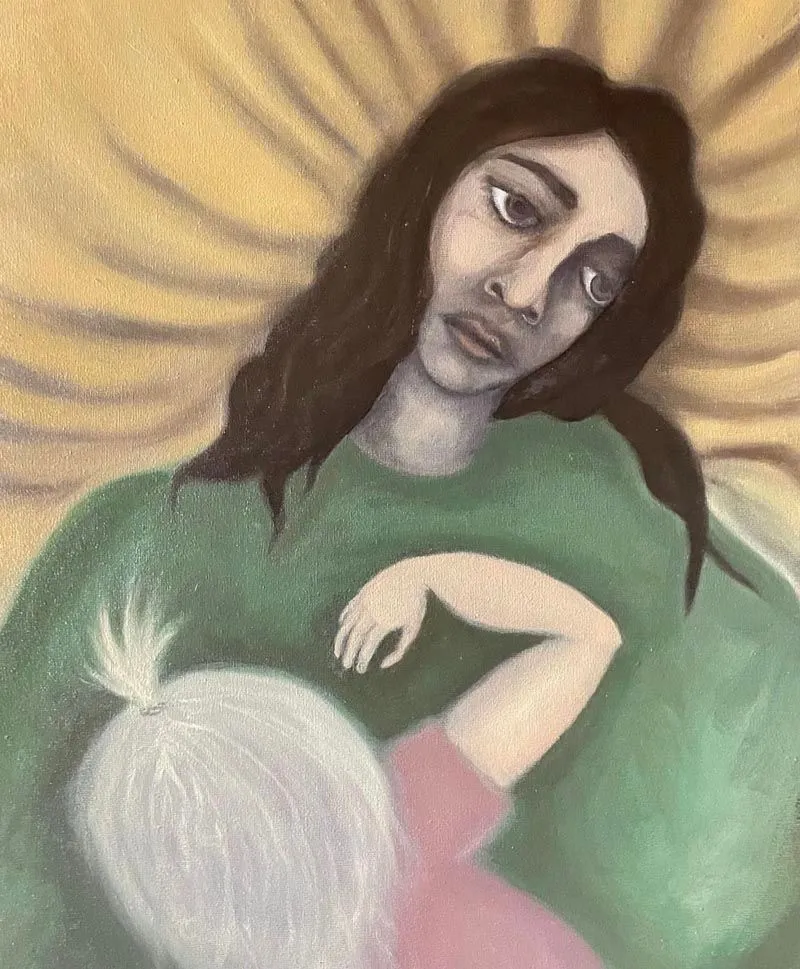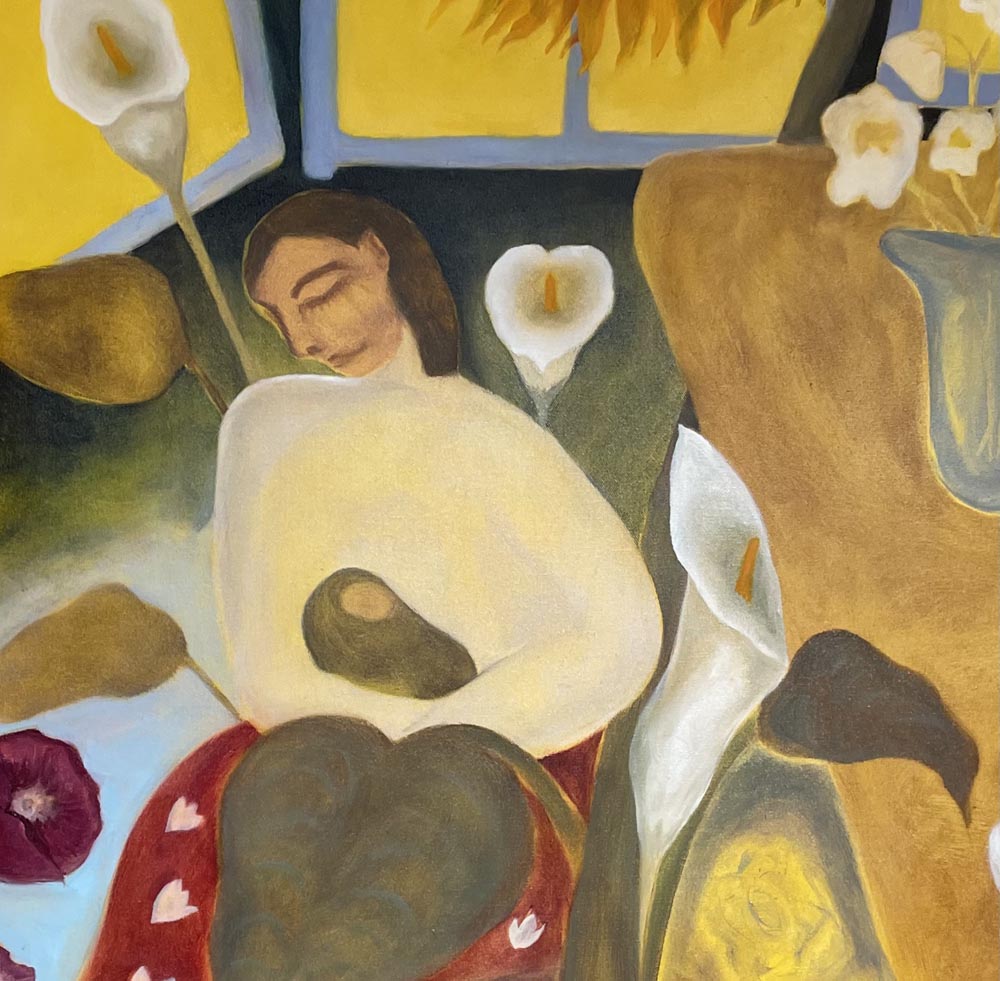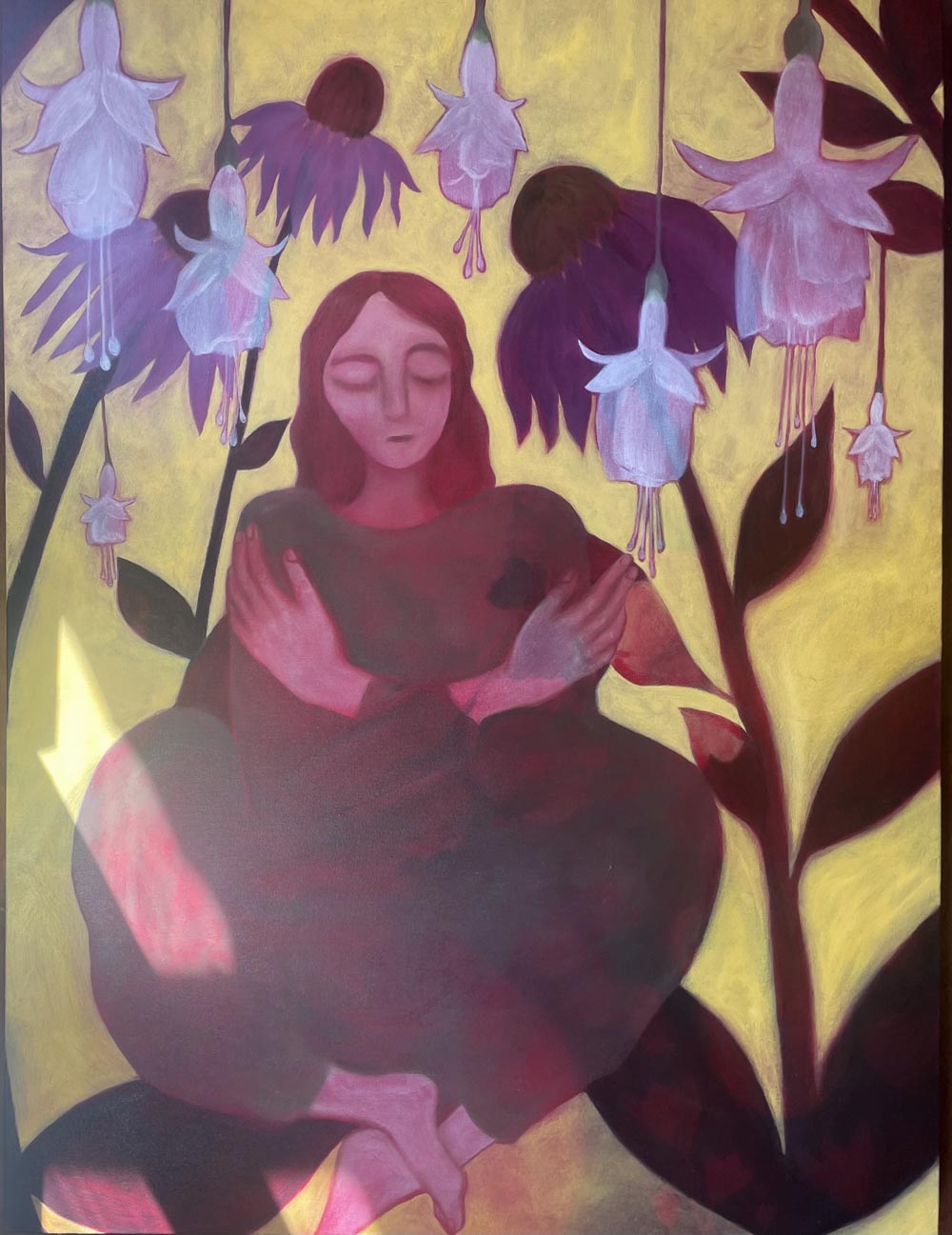Maisie Chilton: reclaiming her artistic identity
Written by

For painter and early childhood teacher Maisie Chilton, art is more than a profession. It’s a lifeline. A recipient of Toi Pōneke's 2025 d/Deaf and/or Disabled Artist Development Residency in Wellington, Maisie will be diving into deeply personal themes of motherhood and identity, shedding light on the complex realities that often go unspoken.

Through her work, Maisie opens space for honest conversations about the conflicting emotions of motherhood: joy and grief, fulfilment and loss.
“People expect you to fit into neat categories,” she explains. “But there’s so much grey area. Motherhood can change your brain in ways you don’t expect. You lose parts of your identity – not by choice but because your brain rewires itself to prioritise your child.”
These themes of transition, identity and adaptation are at the heart of her work, where she captures the emotional texture of parenting: the highs, the lows, and everything in between.
A key feature of Maisie’s work is how she uses art to navigate life’s challenges. In 2021, she received the Arts Foundation Springboard Award and her creativity flourished. The same year, she held an exhibition at Toi Pōneke Arts Centre’s gallery. Called Where does it hurt?, the exhibition examined her personal history and experience with Post Traumatic Stress Disorder (PTSD).
Once she became a mother, that momentum slowed as parenting consumed her time and energy.
Now, the Toi Pōneke residency, from 17 February to 13 April, will offer a way for her to regain momentum while exploring the complex facets of motherhood and identity in her upcoming work.
“Creative work often comes last when you’re surviving daily life,” Maisie says. “The residency will give me space – not just physically but also mentally – to focus on my art and reclaim that part of my identity.”
This renewed focus includes developing technical skills she hasn’t prioritised in recent years and preparing for an upcoming exhibition in mid-2025 in her hometown of Invercargill.
Maisie’s journey into painting was unexpected. Although her mother was an artist and art teacher, Maisie doubted her own abilities, particularly because her cerebral palsy presented physical challenges.
After her mother’s passing, Maisie turned to painting to process her grief. Through this, she discovered not only a passion but also a skill she hadn’t realised was within reach.

“I lean on the canvas because it gives me control,” she explains, detailing how she’s adapted techniques to work around the physical limitations affecting her hands. For Maisie, painting is an embodied experience – proof that art is accessible to everyone, she says.
“Painting isn’t about talent. It’s a learned skill,” she says. “Anyone can paint, even if their body works differently. My message is to try. Art can be adapted and creativity is for everyone.”
The exhibition’s location holds a special significance for Maisie. She started her painting career after leaving Invercargill but the chance to return with a professional exhibition in her hometown feels, as she puts it, “like coming full circle”.
For Maisie, this transformation deeply influenced her creative process. While her art has always been shaped by her personal experiences, this new chapter examines the complexity of motherhood: the “muddy” feelings that exist alongside feelings of joy.
“People expect you to be either a ‘good’ mum or a ‘bad’ mum. There’s no discussion of the grey areas, the cognitive shifts, or the way you can feel caught between who you were and who you are now.”
Through her art, Maisie aims to highlight the multi-faceted nature of motherhood and disability, showing they are as complex as they are enriching. Her work not only reflects her personal journey but also celebrates the resilience and adaptability inherent in creative processes.
As Maisie prepares for her residency and exhibition, she reflects on how transformative it will be for her.
“This moment feels like a reclamation of my artistic identity. It’s incredibly empowering for me to have this time,” she says. “When people are empowered, they create their best work, and I feel that now.”